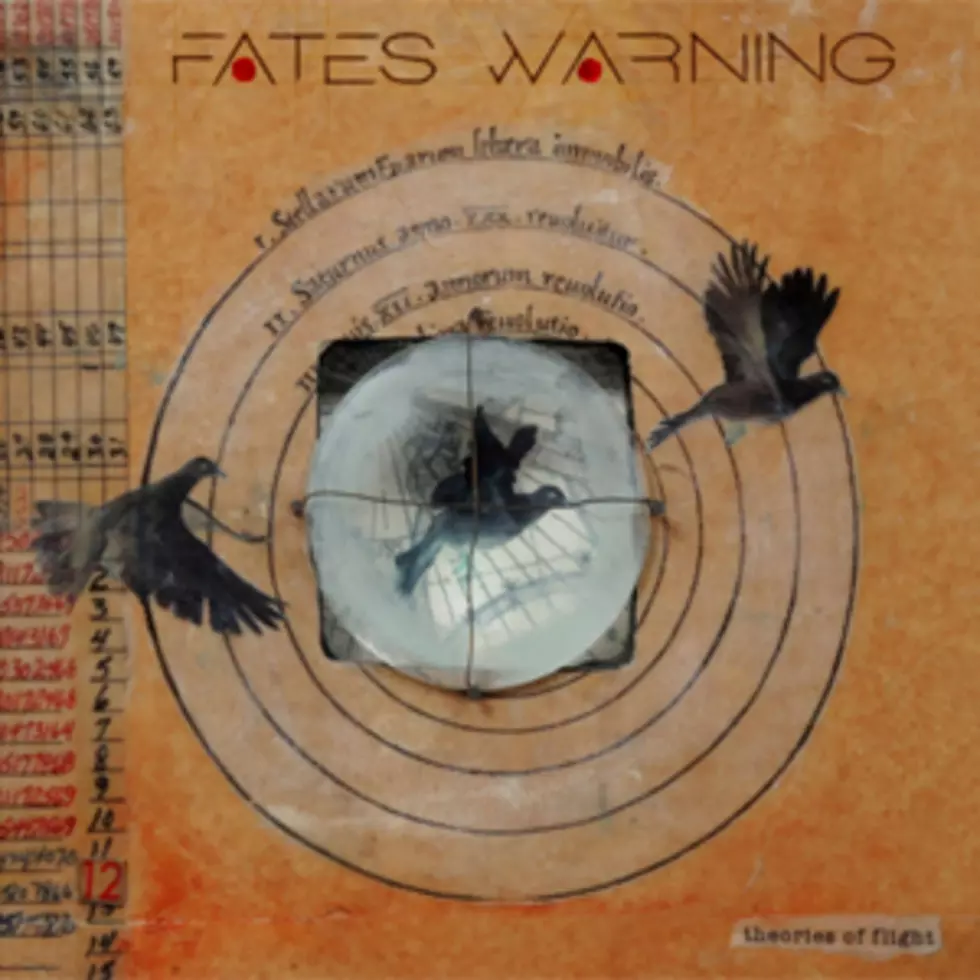
Fates Warning, ‘Theories of Flight’ – Album Review
Fates Warning have been pushing boundaries for over three decades now, morphing from their early NWOBHM inspired roots to one of the forebears of progressive metal. Each album is painstakingly crafted to challenge the listener with loose and unpredictable arrangements and under-the-surface intricacies that demonstrate their elite level of musicianship, all while tying everything together with undeniable sets of hooks. Shifting in a new and heavier direction on 2013’s Darkness in a Different Light, Fates Warning continue this ethos on Theories of Flight, their 12th studio album.
Primary songwriter and lone remaining founding member Jim Matheos wrote the songs in the sequence they appear on the record, so listeners can hear a sort of stream of consciousness approach to Theories of Flight. “From the Rooftops” opens the record with a gloomy, rippling lead and clean passage as Ray Alder’s gleaming voice gently makes its introduction, guiding the melancholy forward. Quickly transitioning into a distorted, churning rhythm, the intensity picks up, making it immediately clear that this album will stand as possibly the band’s heaviest.
Accelerated leads fuse seamlessly with Bobby Jarzombek’s perpetual motion drumming, giving the chorus a feeling of taking off from a runway and connecting the theme of the album’s title along with the ever-present lyrical notion of uprooting and escape. Theories of Flight marks Jarzombek’s second album with Fates Warning and one of the finest performances in his storied career with one of the highlights being his cymbal work five minutes into the track.
Upon the first handful of listens, it can be easy to gloss over the more complex aspects to Fates Warning’s progressive brand as the endless barrage of hooks are simply too anthemic to put aside. “Seven Stars” boasts one of the most compelling choruses on the record, but other highlights lie in the counterpoint between the two guitar tracks and how the lead melodies weave around Alder’s downright captivating and emotive deliveries.
Two of the album’s seven tracks extend over 10 minutes, though neither feels particularly lengthy due to Matheos’ exploratory compositions and, again, those indelible hooks. “The Light and Shade of Things” is arguably the strongest track, opening with a moody three minutes before more jagged rhythms and a bright melody punch through. The song explores numerous peaks and valleys, pulled together at the end where Jarzombek suspends the tension with a flurry of double kicks and a crashing, stunted chord quickly sends the weight crashing toward the ground for a triumphant and impactful ending.
“The Ghosts of Home,” much like “The Light and Shade of Things,” runs through the gamut of emotions, rounded out by touching lyrics from Matheos’ childhood as he moved eight times in nine years. There’s a nervous tension that dominates the song, echoing the sentiments of the personal lyrics which bleed into the title track that follows (and closes) the record. A gloomy atmosphere is the hallmark of “The Ghosts of Home,” bringing the themes of the preceding song into sharper focus where we hear snippets of pointed questions, like a therapy session.
Theories of Flight is best interpreted as a world-class watch. On the surface, one can simply tell the time and admire the clock’s face through the instantly memorable and unforgettable vocal hooks, but look deeper and what you’ll find is an intricate series of interconnected gears — Jim Matheos, Ray Alder, bassist Joey Vera and Bobby Jarzombek — all turning with independent initiatives, yet propelling each other as part of a greater whole. The album can be listened to casually, enjoying the hooks and endless bevy of riffs and moods, or digested slowly, honing in on each member’s role as they all contribute career-defining performances. Theories of Flight is nothing short of a modern progressive masterpiece.
Best Metal Albums of 2016 (So Far)
More From Loudwire









